Hey there! If you're navigating the world of digital content agreements, you know how crucial it is to keep everything clear and up-to-date. Whether you're looking to make minor tweaks or comprehensive changes, having a solid letter template can save you time and headaches. In this article, we'll walk you through the essential elements you need to include in your modification letter. So, let's dive in and simplify the process togetherâread on for all the details!
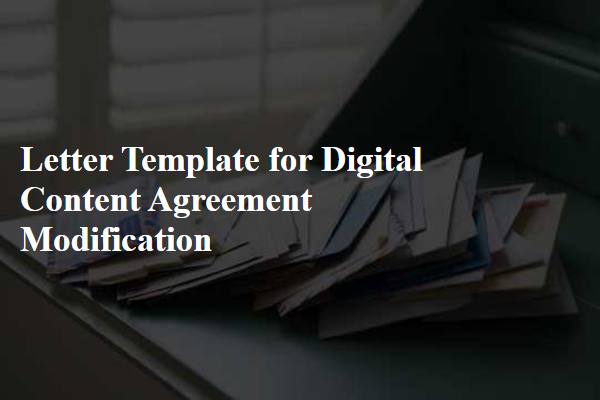
Parties involved and contact details
A digital content agreement modification requires precise details concerning parties involved within the legal framework. The first party may be a digital content creator, such as a freelance writer or graphic designer, along with relevant contact details, including a primary email (e.g., creator@example.com) and a phone number (e.g., +1-234-567-8901). The second party usually represents a publishing platform or agency, identifiable with contact information like a website (e.g., www.publisheragency.com) and a legal address (e.g., 123 Publishing Lane, Suite 100, Creativetown, NY, 12345). This clear delineation ensures that all parties maintain transparent communication and accountability throughout the modification process.
Scope of modifications and specific changes
Digital content agreements often require modifications to adapt to changing goals, technology, or legal standards. Essential modifications may include the scope of content delivery (e.g., transitioning from written articles to multimedia formats), timeline adjustments (such as extending deadlines for creative development), and changes to compensation structures (like increased payment for additional services). Specific changes may consist of revising clauses pertaining to ownership rights (defining copyright ownership more clearly) and updating usage rights (amending restrictions for social media sharing). Additionally, modifications may involve clarifying expectations for revisions and feedback cycles to enhance collaboration and ensure quality content is delivered in line with stakeholder expectations.
Effective date and duration of modifications
The modification of the digital content agreement stipulates that the effective date for these changes will be September 15, 2023. The duration of these modifications will extend for a period of one year, concluding on September 15, 2024. Specific terms regarding renewal and renegotiation should be outlined to ensure clarity in expectations. Changes may encompass licensing fees, content delivery timelines, and compliance with updated digital distribution standards. Adherence to these details is imperative for maintaining a harmonious partnership between involved parties.
Payment terms and compensation adjustments
Digital content agreements often require modifications to payment terms and compensation adjustments to better reflect the evolving nature of the agreement. Payment terms, typically stipulating the time frame for compensation, can vary widely, ranging from net 30 days to project completion milestones. Compensation adjustments might include factors such as inflation rates or changes in scope of work, which could necessitate revising the original financial figures. These adjustments ensure that both parties remain satisfied with the compensation structure throughout the agreement's duration, fostering a collaborative relationship. Furthermore, clear documentation of these modifications provides legal protection and accountability for both the content creator and the hiring entity.
Signatures and acknowledgment of understanding
The modification of a digital content agreement must include sections for signatures and acknowledgment of understanding, ensuring that all parties involved confirm their acceptance of the changes. Each party's name, associated role (such as "Content Creator" or "Publisher"), and date of signature should be clearly listed to facilitate record-keeping. It is crucial that the modifications are summarized in a clear manner to ensure comprehension, especially regarding key elements such as payment terms, content usage rights, and any changes in deliverable timelines. This acknowledgment serves as a legally binding confirmation, reinforcing the mutual consent of the modifications herein mentioned.
Letter Template For Digital Content Agreement Modification Samples
Letter template of terms modification for electronic content partnership
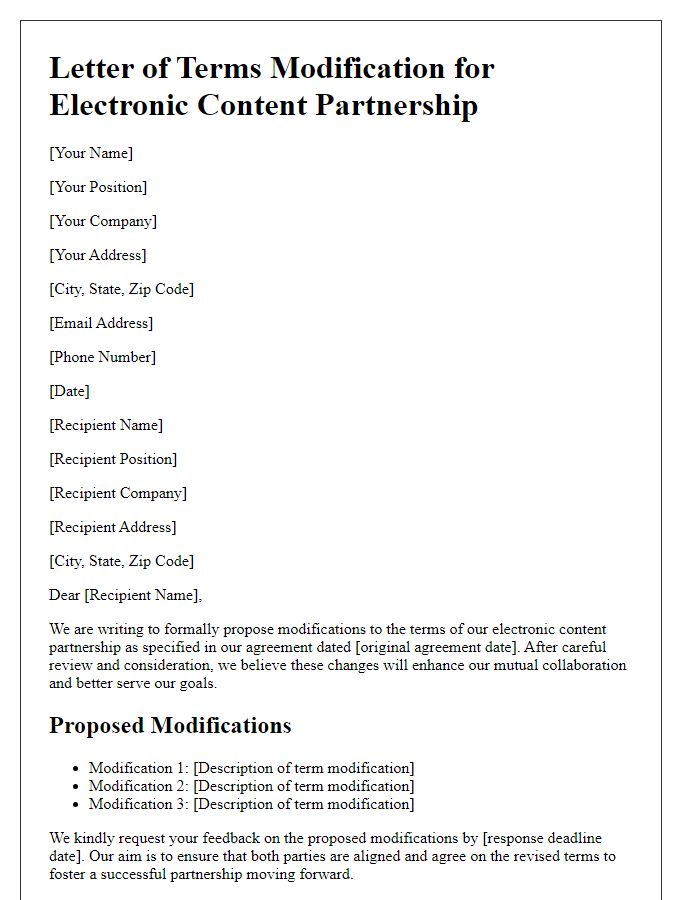

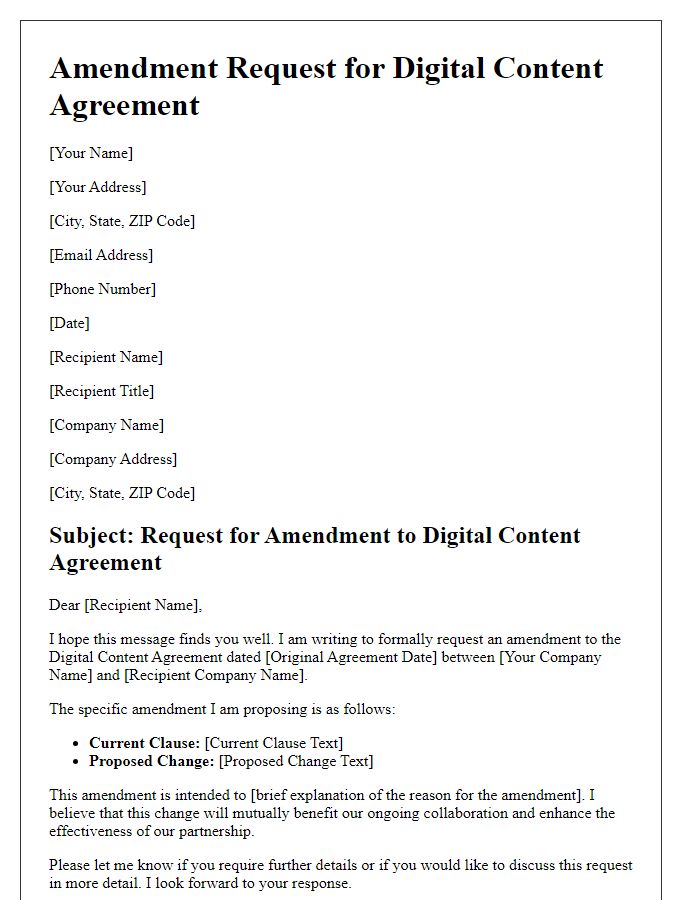
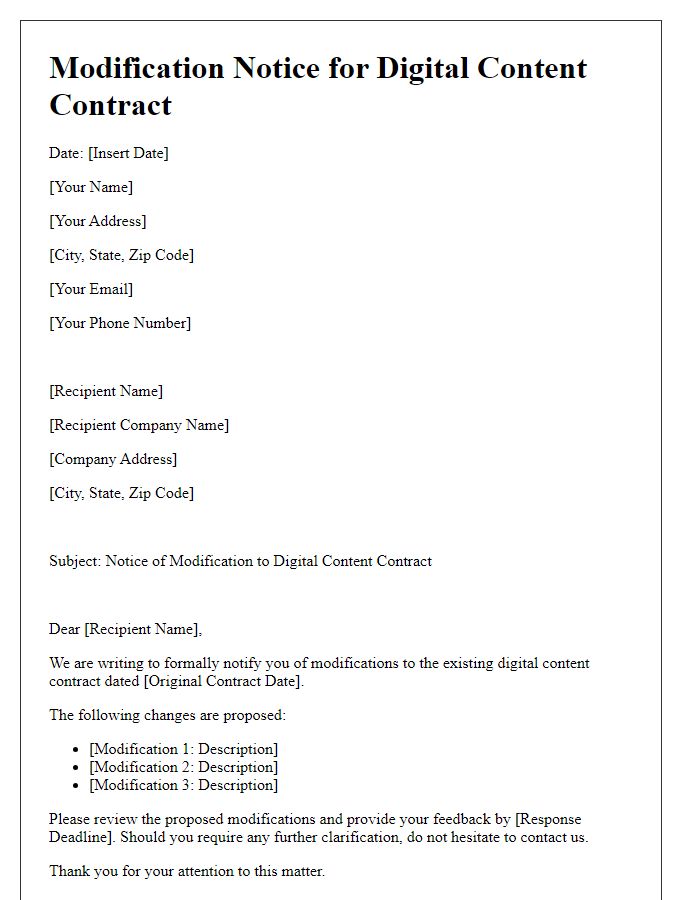
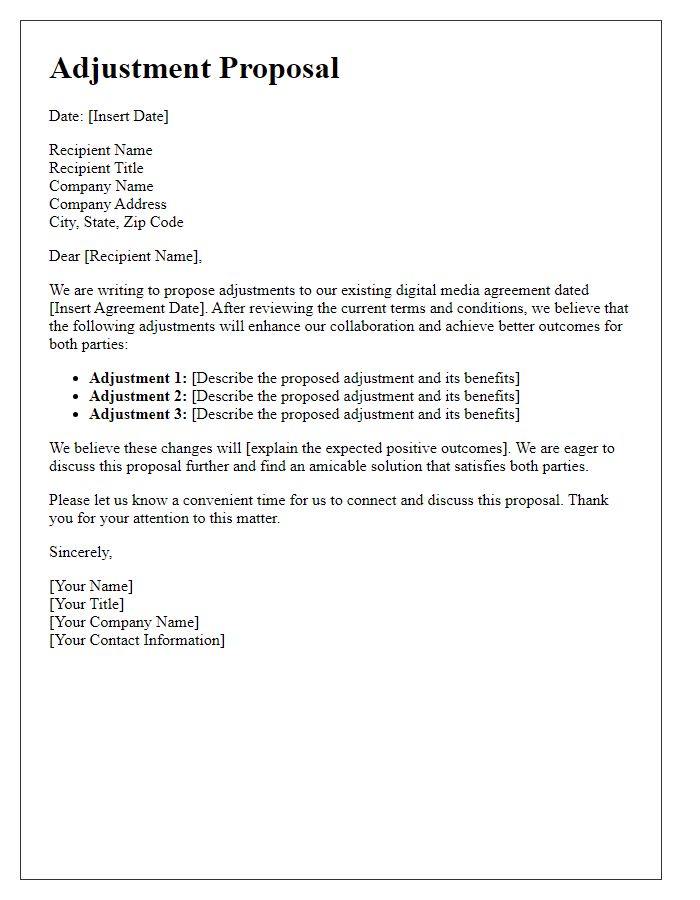
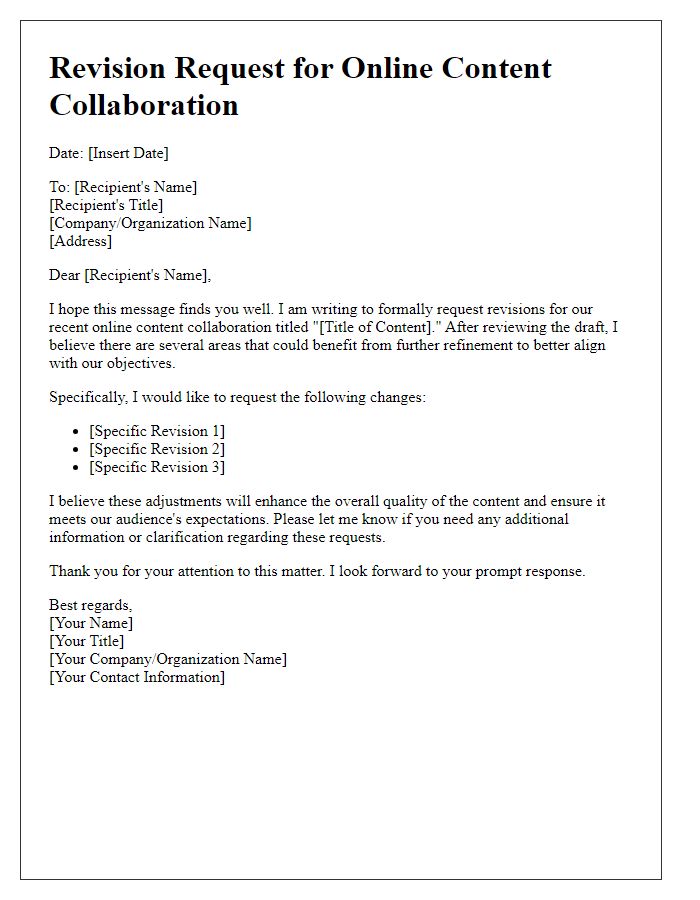
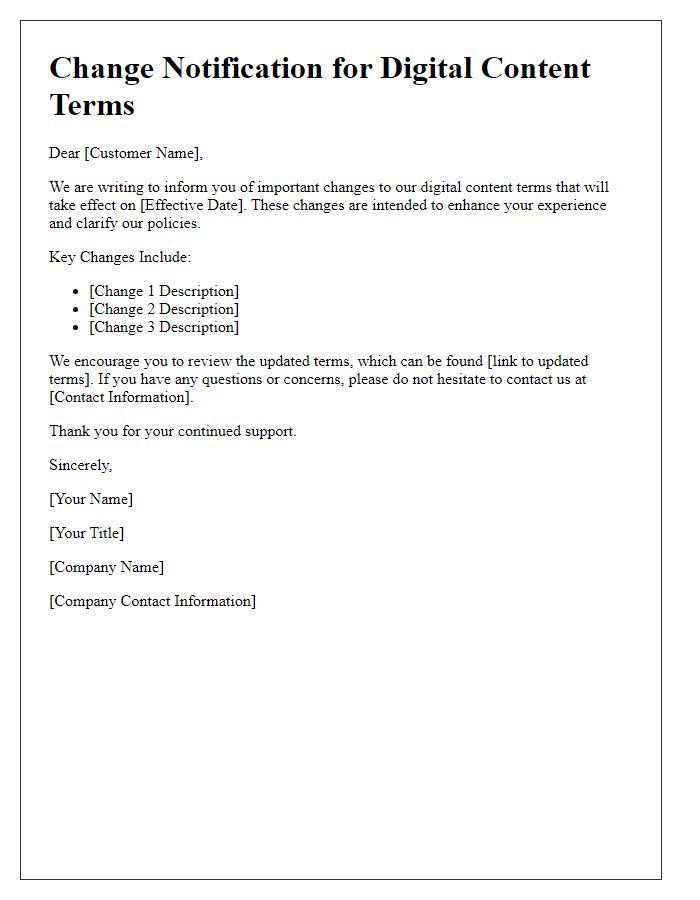
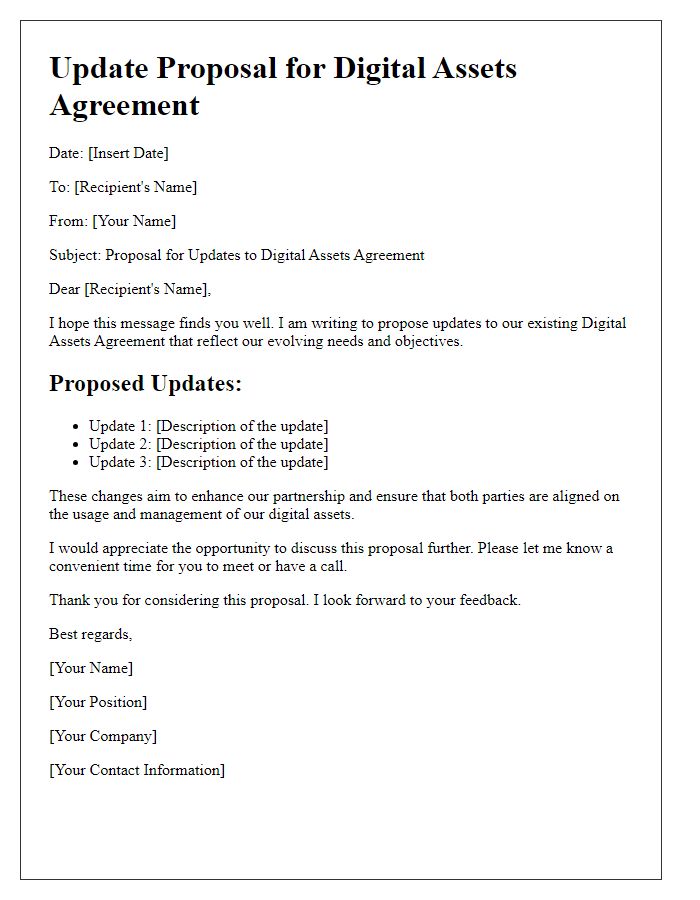
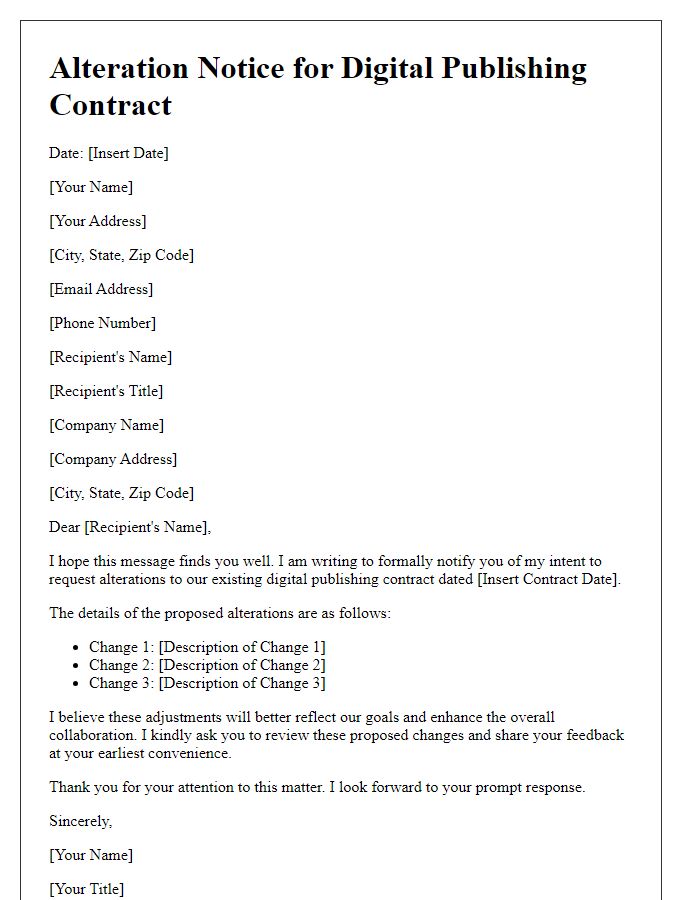
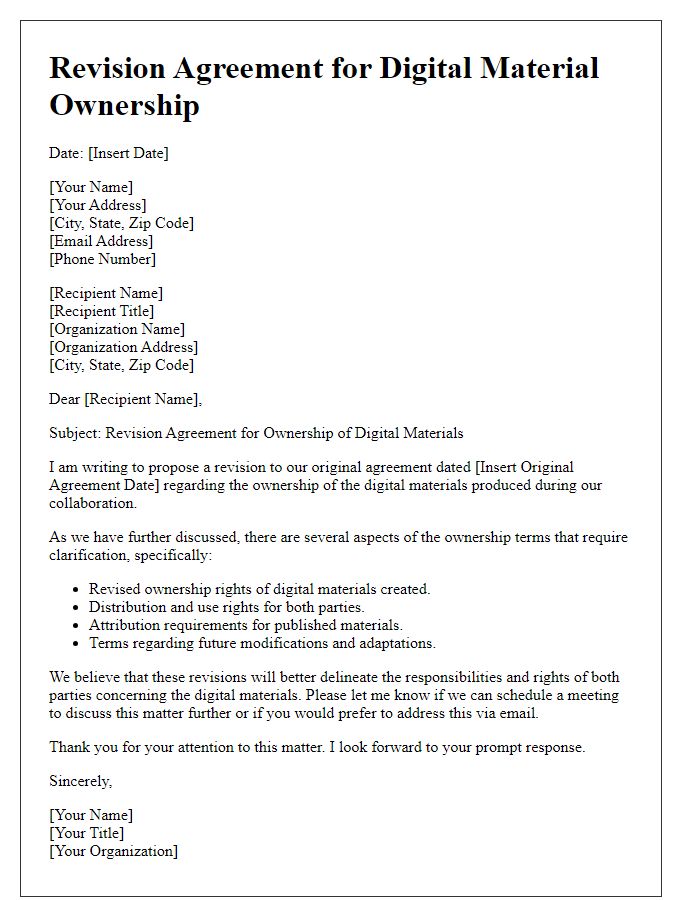
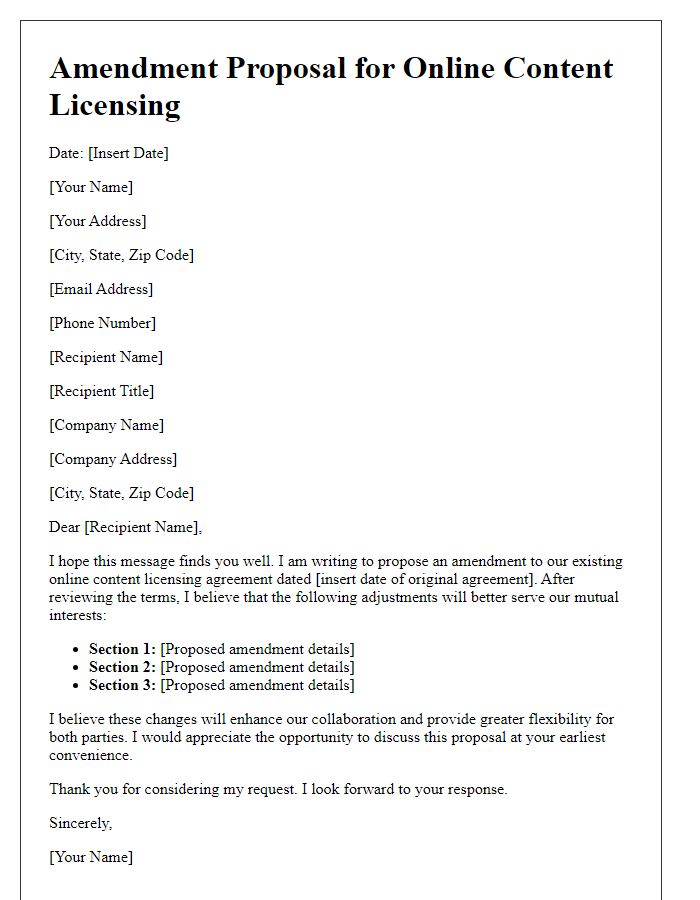


Comments